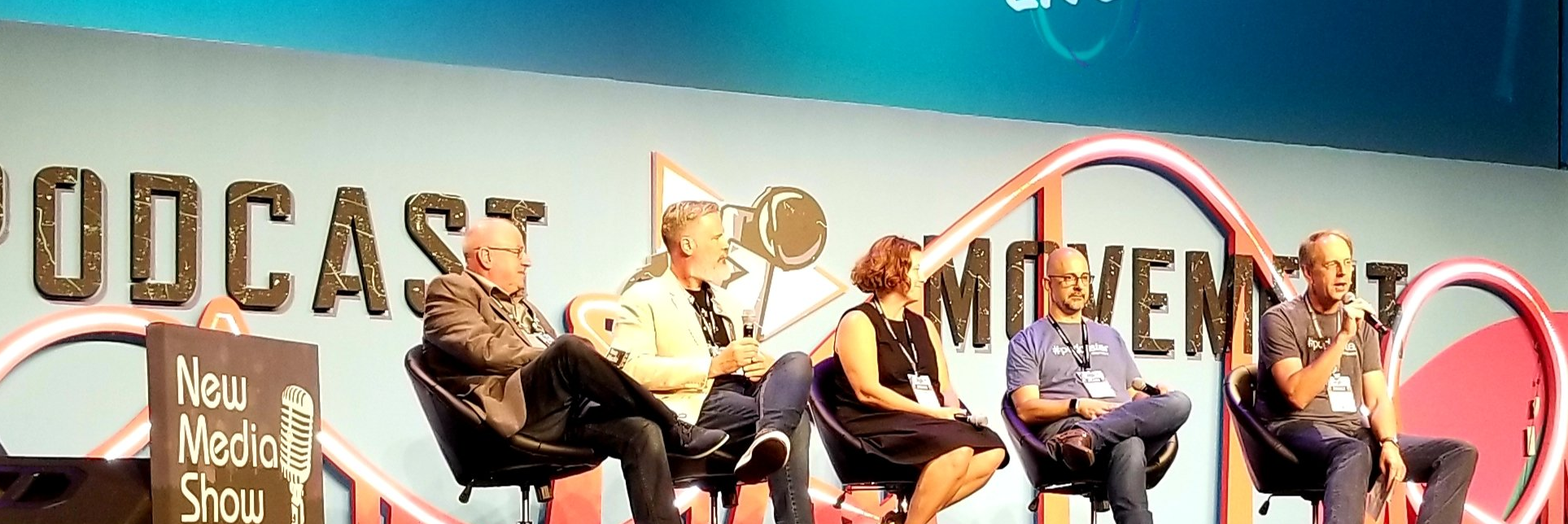By Rob Greenlee
 The podcasting aggregator model has been flawed since the earliest days of podcasting and cannot be easily monetized; it means that podcast-only distribution aggregator platforms or so-called “Podcatchers” have had difficulty generating revenue and profit to support ongoing development investment. Today, most if not all the revenue in the podcasting space today comes from media file hosting and host-read advertising in podcast content that is paid directly to the content creators and advertising sales groups.
The podcasting aggregator model has been flawed since the earliest days of podcasting and cannot be easily monetized; it means that podcast-only distribution aggregator platforms or so-called “Podcatchers” have had difficulty generating revenue and profit to support ongoing development investment. Today, most if not all the revenue in the podcasting space today comes from media file hosting and host-read advertising in podcast content that is paid directly to the content creators and advertising sales groups.
“Podcast only distribution aggregrator platforms or so called “Podcatchers” have had a difficult time generating revenue and profit to support ongoing development investment.”
Redistribution and aggregator-only platforms like Stitcher try to generate revenue from running banner ad-type advertising and audio spot advertising around shows they do not generally have the rights to do without sharing some of that revenue with the podcast content creators. The problem is that the content creator is not getting a cut of that revenue in most cases. Because of this many of those content creators are starting to object to it and pulling content down off of places like Stitcher. Stitcher has had a very flawed business model and had to sell to a large streaming music service based in Europe called Deezer for much less than the amount of cash invested by venture capitalists.
“This redistribution model is coming to Google Play, Spotify in the present and future, but many content providers have pushed back on that practice.”
The other issue with Stitcher has been the cache and redistribution of audio files that caused many issues in the past. This downloading of podcast audio files, re-encoding, and media hosting was done to optimize the playback experience on mobile devices. This redistribution model is coming to Google Play and Spotify in the present and future. Still, many content providers have pushed back on that practice as it degraded the audio quality and caused fragmented or incomplete audience metrics.
I think podcast business models with multiple revenue sources are the key to long-term success. This might be obvious to many, but as we look into the future, this will become very important for new entrepreneurs to understand the podcasting industry. I believe that gone are the days of opening a very narrowly focused podcasting business, and expect it to thrive and survive. The exception to some of this is the hosting-only platform businesses like Libsyn, Blubrry, Spreaker, and Podbean and advertising sales agencies like PodTrac, Midroll Media, and PodcastOne. The companies that focus on media file hosting with metrics services have had a strong history of thriving. The advertising sales-focused companies have recently seen increasing viability and success as the medium grows.
We see content-focused companies like Slate, PodcastOne, Earwolf, ESPN, TWiT.TV and many others are experiencing increased revenue growth. The future of content-focused media companies is strong. The business models for these companies are starting to be built on multiple revenue streams. These streams are rooted in advertising, live events, and television show development.
The other important growth area is with a full spectrum of on-demand audio and podcasting platforms like Spreaker.com, AudioBoom, and Blog Talk Radio. Many will disagree with Blog Talk Radio being an example of the future of profitable podcasting platforms, but think that ease of listening; advertising sales in combination with revenue-generating audio creation tools is a future business model that works.
I have heard for years that many platforms have been working on adding easier content creation to the cloud using app functionality, but many of those have never seen a release. I think that was a mistake and leaves open the door to developing a leading platform supporting all aspects of listening, live streaming, and media file hosting. RSS feed creation, advertising sales, audience engagement tools, and detailed distribution metrics.
Many have thought that SoundCloud could be the leading platform for podcasters, but I wonder about their commitment to content creation and open syndication. Spreaker.com might be that future platform with all the potential to be the YouTube-like platform of the podcasting space that has multiple revenue streams that span media hosting, app development, advertising sales, and other creative services. Spreaker will also share ad revenue. They recently released a new app for iOS that is targeted at content creators to do live shows and record on-demand shows. I believe that to succeed a company must live in all parts of the industry and find many services to offer its listeners and content creators who oftentimes are the same users.

Dear Rob,
I produce a podcast since 2010 featuring Brazilian music (www.zuim.org) based on a collection of 60.000 songs that I own. I’ve very seldom downloaded songs from web stores. I think there is a lot of interest in some rarities I’ve been streaming along the way, some with bad quality recording because of its nature (rehearsals, live shows…). There is some information in English about the content.
After 10 years working by myself I’ve questioned this model and a would love to migrate the body of work either to youtube or a podcast aggregator. I could never have i Tunes including me in their podcast lists although my content is very well considered and better than many covering Brazilian music from 1920’s till today. Would love to hear from you and get some directions where to run to.
Best, Haydee Belda